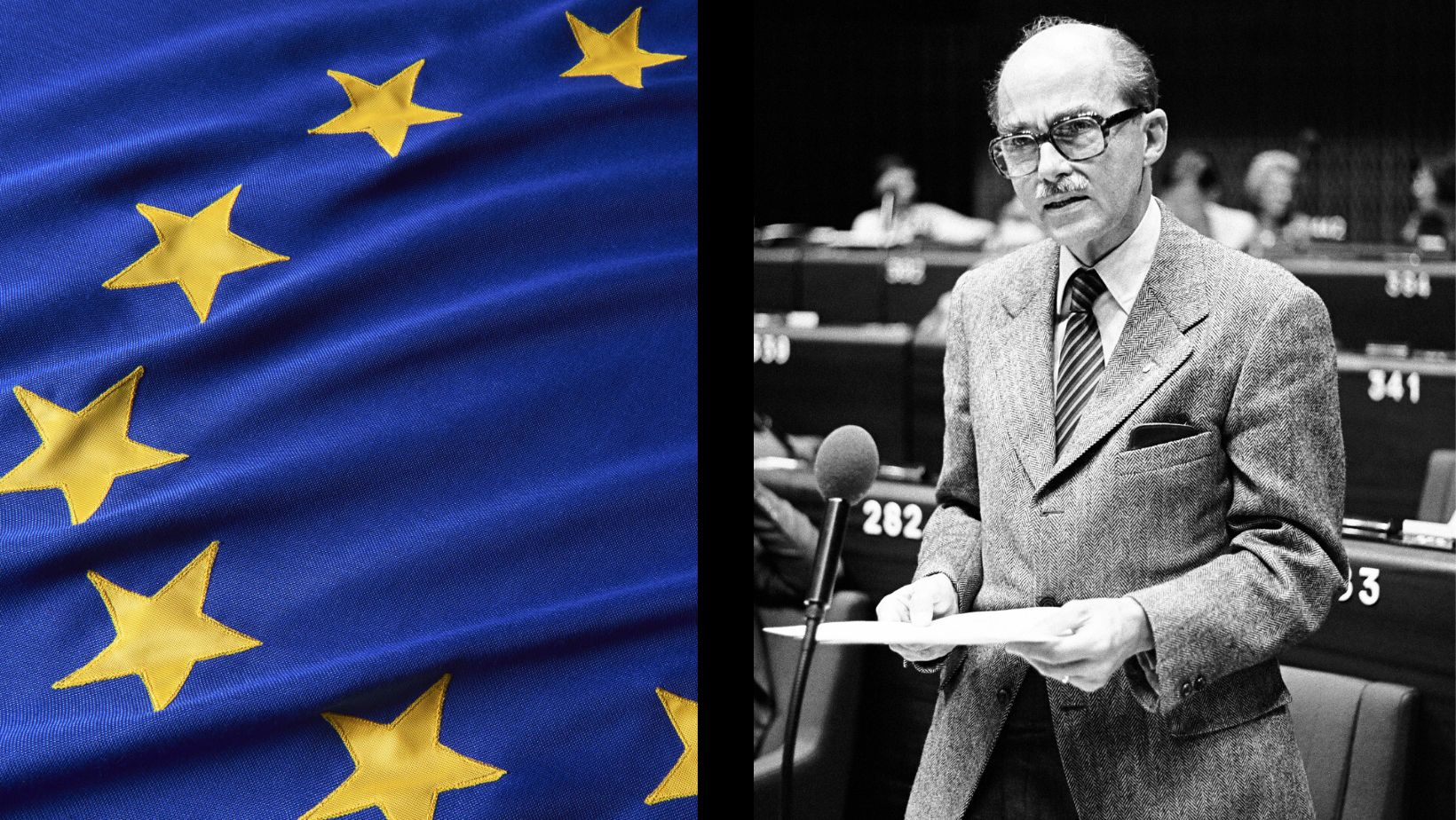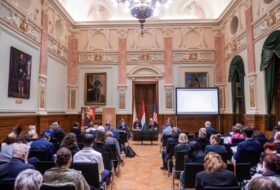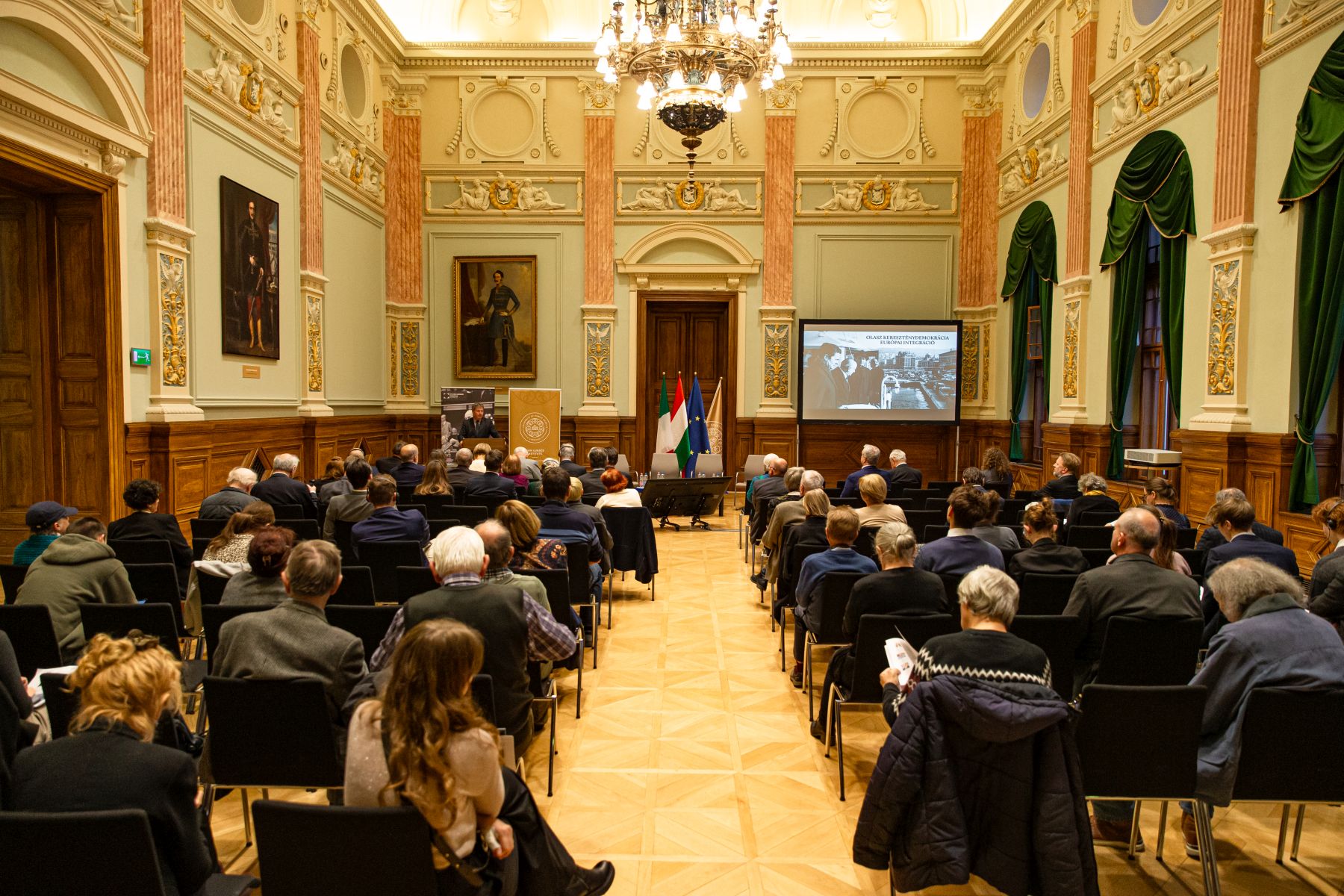When the future began.
Drawing conclusions from the history of the European Union
Venue: University of Public Service, Main Building, Széchenyi Ceremonial Hall
(Budapest, Ludovika square 2, 1083)
Date: 8 May 2023 (Monday), 9 am
Registration: HERE
Sixty years ago, on 4 September 1963, Robert Schuman, who put forward his legendary plan for the future of European cooperation on 9 May 1950, died at the age of 76. In his assessment of Schuman’s career, Otto von Habsburg considered that the secret of the late French Foreign Minister’s success was that he had “the courage of self-restraint”, justified by his historical experience. “Large-scale, far-reaching plans cannot be achieved by leaps and bounds, but by small steps”, as Otto wrote in remembrance of Schuman, an imperative admonition for the development of European cooperation. The aim of our conference is to reflect on the history of integration over the last seven decades and draw conclusions that will help us interpret the current situation and shape the future of the European Union.
Programme
9.00–9.30 Opening addresses
Gergely Deli, Rector of the University of Public Service
Judit Varga, Minister of Justice of Hungary
Gergely Prőhle, Director of the Otto von Habsburg Foundation and the Institute for Strategic Studies of the University of Public Service
9.30–10.00 Keynote speech
János Martonyi, Former Foreign Minister of Hungary
10.00–11.15 Round table discussion: European history – Hungarian destiny
Tibor Navracsics, Minister for Regional Development and EU Funds
István Mustó, former colleague of the German Development Institute, Member of the Hungarian National Assembly
István Hiller, former Minister of Education and Culture, Member of the Hungarian National Assembly
Moderator: Boglárka Koller, Jean Monnet Professor for European Studies, Vice-Rector for International Affairs, University of Public Service
11.15–11.30 Coffee break
11.30–12.45 Presentations: The sources of historical awareness in Europe
Helmut Wohnout, Director General of the Austrian State Archives
Austrian Approaches to European Integration from 1945 to 1995
Dieter Schlenker, Director of the Historical Archives of the European Union (Florence)
The Historical Archives of the European Union, as a potential source for the development of contemporary policy-making
Aline Sierp, Associate Professor at Maastricht University
History, remembrance and the European project
Moderator: Gergely Prőhle
12.45–13.00 Questions
13.00 Lunch
The conference will be held in Hungarian, German and English, simultaneous interpretation will be provided.


